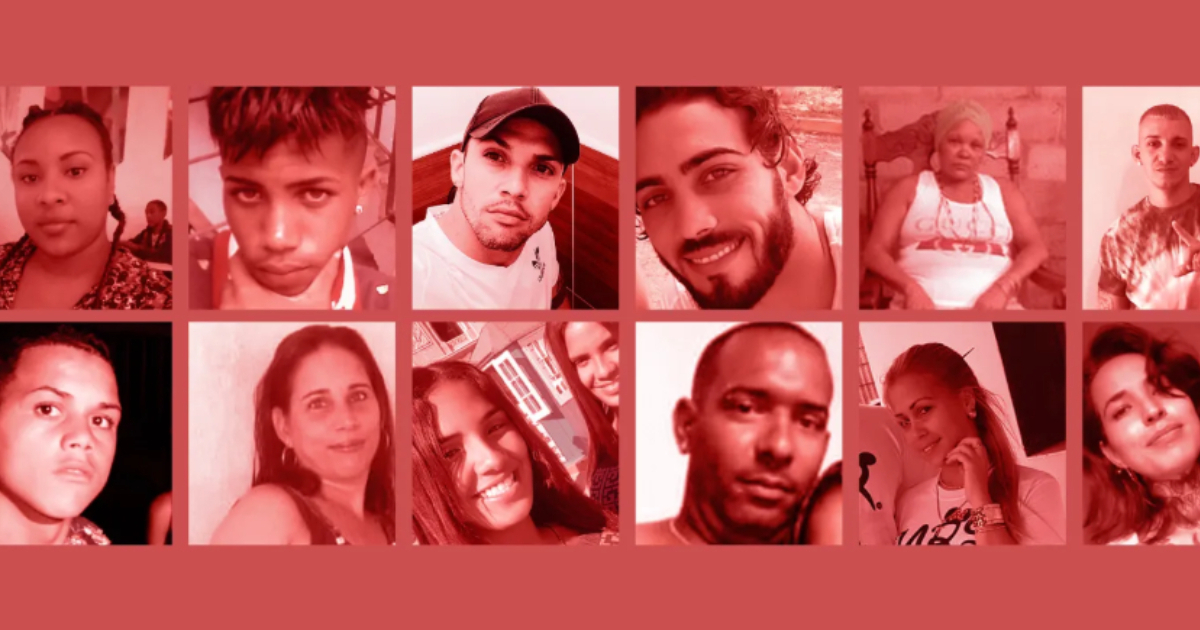
Related videos:
Almost thirty Cuban political prisoners, including Luis Robles Elizastigui and protesters from the 11J demonstrations, were released in the first 36 hours following the agreement reached by the Havana regime with the United States through the Vatican.
On January 14, 2025, the Cuban government announced the gradual release of 553 individuals who were serving sentences for various offenses.
In the first 24 hours, he released 22 individuals and has since released others, including the Cuban opposition leader José Daniel Ferrer García, according to a real-time list from the organization Cubalex.
In a statement, the regime outlined that these releases would take place under special conditions, allowing those freed to remain under supervision and with pending legal obligations, such as temporary extrapenal licenses.
Cubalex, an organization dedicated to the defense of human rights, is conducting an independent verification of each of the confirmed cases.
Through a list that will be updated in real-time, it can be seen that at the time of publishing this note, 28 prisoners have already been released.
Andro Ledesma Prieto
Arturo Valentín Riverón
Carlos Manuel Pupo Rodríguez
César Adrián Delgado Correa
Dariel Cruz García
Donaida Pérez Paseiro
Eduin Rodríguez Fonseca
Endris Fuentes Zamora
Iris Belkis Oduardo Rodríguez
Javier González Fernández
Jorge Gabriel Arruebarruena León
Jorge Luis Salazar Brioso
José Daniel Ferrer García
José Miguel Gómez Mondeja
Juan Yanier Antomarchi Nuñez
Katia Beirut Rodríguez
Liliana Oropesa Ferrer
Lisdani Rodríguez Isaac
Lisdiany Rodríguez Isaac
Liván Hernández Sosa
Luis Robles Elizastigui
Magdiel Rodríguez García
Mailene Noguera Santiesteban
Randy Arteaga Rivera
Reyna Yacnara Barreto Batista
Rogelio Lázaro Domínguez Pérez
Rowland Jesús Castillo Castro
Yessica Cohimbra Noriega
Although these individuals have been released from prison, they are not fully free, as they still have to fulfill other legal obligations under specific conditions, Cubalex reports.
The Cuban government has denied reports suggesting a direct link between these releases and negotiations with the United States government, although sources from the Biden administration have confirmed that this process is connected to an agreement in which Cuba commits to releasing a significant number of political prisoners.
In this agreement, facilitated by the mediation of the Catholic Church, the United States also removed Cuba from the list of state sponsors of terrorism and suspended Title III of the Helms-Burton Act.
The change in U.S. policy occurred after a report from December 2023, which kept Cuba on the list of state sponsors of terrorism. However, by the end of 2024, the Biden administration adopted a more conciliatory stance, allowing for the release of prisoners and a reduction in economic sanctions.
In this context, the repression against opponents on the island continues to be documented. The recent case of Félix Daniel Pérez Ruiz and Cristhian de Jesús Peña Aguilera, two young men sentenced to five and four years in prison for expressing themselves on social media, reflects the ongoing human rights violations under the Díaz-Canel regime. Both were prosecuted for "propaganda against the constitutional order" after sharing posts critical of the government.
Cubalex calls on individuals who have benefited from releases and their families to stay informed and consult with their lawyers about their legal situation, especially in cases of temporary extrapenal release. The organization also provides legal advice to those needing guidance regarding the release processes.
For more information or to report cases of release, Cubalex has made its contact channels available to the public.
Frequently Asked Questions about the Release of Political Prisoners in Cuba
How many political prisoners were recently released in Cuba?
Almost 30 political prisoners were released in the first 36 hours following the agreement between the Cuban regime and the United States, mediated by the Vatican. This figure is part of a total of 553 individuals expected to be gradually released.
What conditions do released political prisoners face in Cuba?
Despite being released from prison, political prisoners are not completely free. They remain under a regime of surveillance and have pending legal obligations, such as temporary extrapenal licenses, which means they still face restrictions and possible revocation of their parole.
What role did the United States and the Vatican play in the release of political prisoners in Cuba?
The release of political prisoners was facilitated by an agreement reached between the Cuban regime and the United States, with the mediation of the Vatican. The United States removed Cuba from the list of state sponsors of terrorism and suspended Title III of the Helms-Burton Act as part of this agreement, allowing for the release of a significant number of prisoners.
How has the international community reacted to the release of political prisoners in Cuba?
International organizations such as Amnesty International have called for the release of all political prisoners in Cuba. The international community has expressed skepticism regarding the transparency of the release process and has urged that human rights be respected on the island.
Filed under: